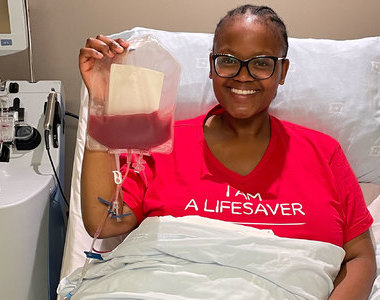Special COVID-19 app to screen SA’s workforce
29 May 2020 | Story Niémah Davids. Photo Raymond Botha. Voice Sarin Drew. Read time 5 min.
As South Africans prepare for lockdown level 3 as of Monday, 1 June and additional industries get ready to open shop, academics at the University of Cape Town’s (UCT) School of Public Health and Family Medicine, in collaboration with the University of KwaZulu-Natal (UKZN), have developed a useful screening tool that assesses whether workers are healthy enough to return to work.
The COVID-19 Workplace Medical Passport is a special application that uses technology to screen employees’ symptoms and current health status before they make their way to work. The data is then delivered straight to the occupational health and safety manager or the occupational health specialist for review, thanks to the application’s back-end component that generates an employer’s report.
Depending on the information employees provide, results are presented in three colours: red recommends “confirmatory [COVID-19] testing”, while orange encourages additional health monitoring and green means employees are well enough to proceed to work. These indicators are based on the National Department of Employment & Labour’s COVID-19 directive on health and safety in the workplace, and the National Department of Health’s symptom monitoring and management of staff with COVID-19 guidelines.
The application has been developed by Professor Mohammed Jeebhay, head of Occupational Medicine at UCT, and Professor Rajen Naidoo, head of Occupational and Environmental Health at UKZN’s School of Nursing and Public Health. Jeebhay and Naidoo are occupational medicine specialists and have been examining the impact of COVID-19 on the public and private sector workforce. Together, the duo develops strategies to mitigate the risks the pandemic poses at various levels.
“It is critical that essential workers … are timeously identified, screened, tested and diagnosed.”
Jeebhay and Naidoo also serve as technical advisers to the National Department of Health’s COVID-19 Occupational Health and Safety Workstream, which addresses the myriad issues related to the health of the country’s workforce.
“It is critical that essential workers such as health workers at the frontline of the COVID-19 pandemic and many other key sectors are timeously identified, screened, tested and diagnosed with COVID-19,” Jeebhay said.
“This means that their condition can be managed appropriately so that they can return to work when they are well enough to do so.”
A simple tool
According to Jeebhay, the application is user-friendly, and the questionnaire takes just a minute to complete. The system also allows users to complete more than one questionnaire in a working day should their condition change, and obviates the need for any paperwork.
The app produces daily reports on employees’ health and well-being and can be adapted in line with organisations’ individual needs.
While developing the application, Jeebhay explained that UCT and UKZN also partnered with non-profit organisation Mobenzi, a digital platform that helps organisations digitise data collection. Mobenzi provides employers with the back-end support to access employees’ information, contributing to workforce preservation strategies.
“There was great need to develop a simple, easy-to-use tool that would assist with screening and monitoring symptoms daily before employees enter the workplace, as well as provide instant feedback to the organisation’s health professionals managing employees,” Jeebhay said.
Protecting the workforce
As COVID-19 continues to grip the country and the world, Jeebhay said academics, clinicians and epidemiologists in occupational medicine have three priorities:
- to protect frontline health workers in the field from COVID-19 infection
- to better understand the trends among all categories of employees as they move from asymptomatic to having COVID-19 symptoms
- to understand the individual, behavioural and workplace risk factors that increase the risk of mild to severe forms of the disease and other outcomes, including chronic diseases, and develop risk mitigation strategies.
“The COVID-19 Workplace Medical Passport is intuitive and even allows employees to assess themselves while on duty.”
While the application is geared towards health workers in the public and private sectors, Jeebhay said small- and medium-sized enterprises in the private sector have also taken an interest in the tool. The app is free to use for businesses with fewer than 500 employees.
“The COVID-19 Workplace Medical Passport is intuitive and even allows employees to assess themselves while on duty. This safeguards other staff as well as visitors and clients,” he said.
Tried and tested
UKZN medical students have already piloted the app, Jeebhay added. Staff and students at Durban University of Technology are next in line to further test its usefulness once campus reopens in a phased approach.
During the pilot phase, Jeebhay said respondents also suggested that the app be translated into isiZulu. This is being looked at.
“UCT’s mission to address societal challenges requires inter-disciplinary and inter-institutional collaboration, which the COVID-19 pandemic has made ever so apparent,” he said.
“This collaboration demonstrates that we can combine our expertise, together with our experience in different contexts, to develop a tool that is responsive and can be applied in different contexts in the country.”
 This work is licensed under a Creative Commons Attribution-NoDerivatives 4.0 International License.
This work is licensed under a Creative Commons Attribution-NoDerivatives 4.0 International License.
Please view the republishing articles page for more information.
Listen to the news
The stories in this selection include an audio recording for your listening convenience.























































































































































































































































































































































































